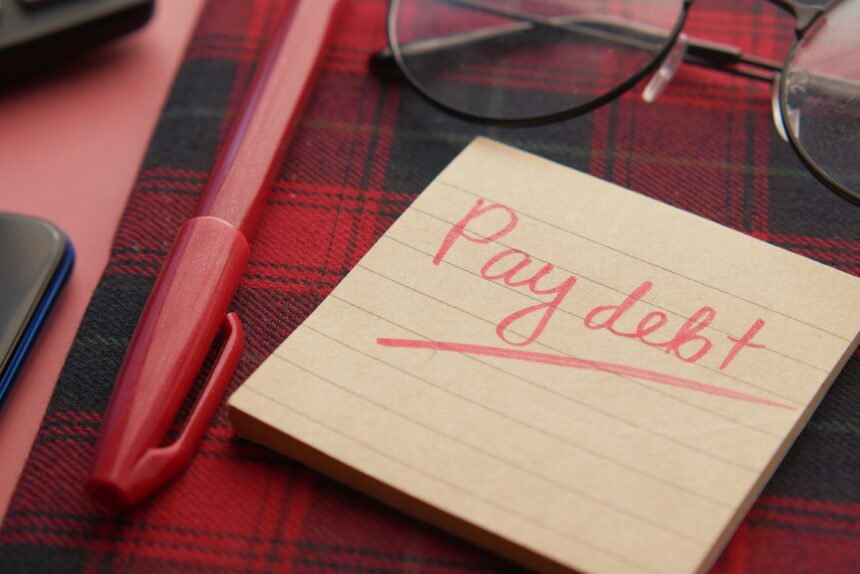Achieving financial freedom starts with one fundamental skill—budgeting. By mastering the art of financial planning, you can take control of your expenses, increase savings, and eliminate financial stress. Whether you are just starting or looking to refine your budgeting techniques, this comprehensive guide will help you build a solid foundation for lasting financial success.
Understanding the Basics of Budgeting
Budgeting is the process of tracking income and expenses to ensure financial stability. It helps individuals and families allocate their resources efficiently while preventing unnecessary debt accumulation. A well-structured budget acts as a roadmap that guides spending decisions and long-term financial planning.
One of the key benefits of budgeting is that it allows you to have a clear understanding of where your money goes each month. Many people struggle with finances because they fail to monitor their expenditures. By setting up a structured budget, you can identify areas where you can cut costs and optimize your savings.
Setting Financial Goals Before Creating a Budget
Before diving into the budgeting process, it’s essential to establish financial goals. These goals act as motivationmotivationmotivationmotivationmotivationmotivationmotivation to stay committed to your budget. They can be short-term, such as saving for a vacation, or long-term, such as building an emergency fund or planning for retirement.
Setting SMART (Specific, Measurable, Achievable, Relevant, and Time-bound) financial goals ensures you remain focused. For instance, instead of vaguely saying, “I want to save more money,” a SMART goal would be: “I will save $5,000 in the next 12 months by cutting down on non-essential expenses.”
Tracking Your Income and Expenses
To create an effective budget, you must first track your income and expenses. Begin by listing all sources of income, including salaries, side hustles, investments, and any other earnings. Understanding your total income allows you to allocate funds accordingly.
Next, categorize your expenses into fixed and variable costs. Fixed expenses include rent, mortgage payments, insurance, and utilities, while variable expenses cover groceries, dining out, entertainment, and other discretionary spending. Analyzing these expenses will help you determine where adjustments are needed.
Choosing the Right Budgeting Method
There are several budgeting methods available, and choosing the right one depends on your financial situation and preferences. Some of the most popular budgeting techniques include:
The 50/30/20 Rule – This method allocates 50% of your income to necessities, 30% to discretionary spending, and 20% to savings and debt repayment. It is simple yet effective for maintaining a balanced financial lifestyle.
Zero-Based Budgeting – With this approach, every dollar of income is assigned a specific purpose. At the end of the month, your income minus expenses should equal zero. This technique ensures no money is wasted and forces mindful spending.
Envelope System – This cash-based budgeting method involves placing money into envelopes for different spending categories. Once an envelope is empty, no additional funds can be used in that category until the next month.
Pay Yourself First Method – In this strategy, you prioritize savings before allocating money to expenses. By treating savings as a non-negotiable expense, you can build a strong financial cushion over time.
Cutting Unnecessary Expenses and Increasing Savings
Once you have categorized your expenses, look for areas where you can cut back. Many individuals spend excessively on non-essential items without realizing it. Cutting back on dining out, subscription services, and impulse purchases can significantly impact your overall savings.
Another way to boost savings is by negotiating bills and looking for discounts. Many service providers offer better rates if you inquire about promotions or switch to a lower-tier plan. Additionally, automating your savings ensures that you consistently set aside money without the temptation to spend it elsewhere.
Building an Emergency Fund
An essential component of budgeting is having an emergency fund. Life is unpredictable, and unexpected expenses such as medical bills, car repairs, or job loss can disrupt your financial stability. Financial experts recommend saving at least three to six months’ worth of living expenses in an easily accessible account.
To build an emergency fund, start small and gradually increase contributions. Consider setting up automatic transfers to your emergency fund each payday to ensure consistent growth.
Managing Debt While Sticking to a Budget

Debt can be a significant obstacle to financial freedom, but with a well-structured budget, you can develop a plan to pay it off efficiently. The two most common debt repayment strategies are:
Snowball Method – Focus on paying off the smallest debts first while making minimum payments on larger debts. This method provides quick wins and motivates you to continue.
Avalanche Method – Prioritize paying off high-interest debts first, saving you more money in the long run by reducing interest payments.
Whichever method you choose, staying consistent and making regular payments is crucial to eliminating debt.
Adjusting and Reviewing Your Budget Regularly
A budget is not a one-time plan but a dynamic tool that should be reviewed and adjusted as needed. Regularly analyzing your financial situation helps identify areas for improvement. If your income changes or expenses fluctuate, update your budget accordingly.
Using budgeting apps and tools can simplify the process. Popular options like Mint, YNAB (You Need a Budget), and Personal Capital provide insights and analytics to help you stay on track.
Final Thoughts: Achieving Long-Term Financial Freedom
Budgeting is the foundation of financial success. By setting clear goals, tracking income and expenses, and making informed spending decisions, you can build wealth and secure your financial future. Developing disciplined budgeting habits today will lead to financial independence and peace of mind in the long run.
Start taking control of your finances today and experience the benefits of a well-planned budget. With consistency and smart financial choices, you will be on the path to long-term financial stability and success.
